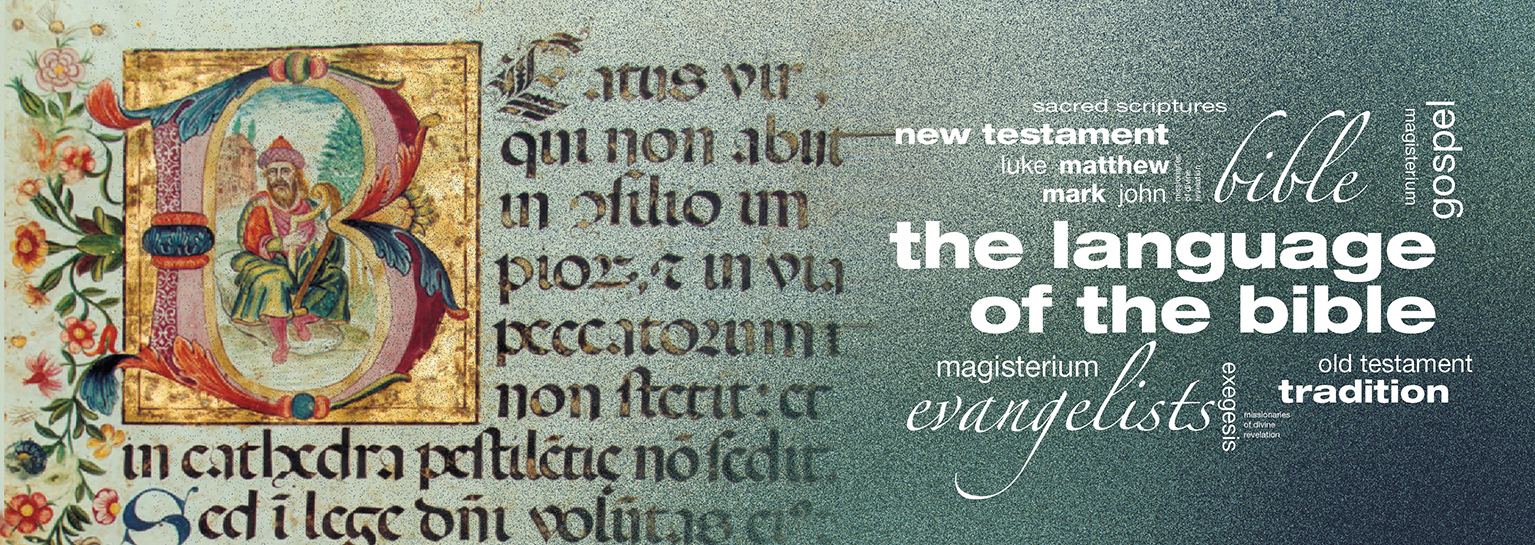 The Angelus has a long tradition that, in one form or another, can be traced to the 12th Century. Over time it became customary to say the prayer at 6am, the time of Our Lord’s resurrection, at noon, in memory of His passion and death, and at 6pm in memory of His Incarnation. In this way, the day becomes interspersed with the practice of meditating on the central mysteries of the faith!
The Angelus has a long tradition that, in one form or another, can be traced to the 12th Century. Over time it became customary to say the prayer at 6am, the time of Our Lord’s resurrection, at noon, in memory of His passion and death, and at 6pm in memory of His Incarnation. In this way, the day becomes interspersed with the practice of meditating on the central mysteries of the faith!
The Angelus takes its name from the first line of the prayer in Latin, “Angelus Domini nuntiavit Mariæ..”. The prayer is a biblical meditation in the mystery of Our Lord’s Incarnation and in each of the four invocations we call to mind this mystery through the words of the Holy Scriptures.
“The angel of the Lord declared unto Mary, And she conceived of the Holy Spirit.” (cf. Lk 1:26-28; 35)
By repeating the words of St Luke’s Gospel we hear the way that the Lord entered human history. We hear the way that the Lord entered Mary’s history and, as we pray, the way that the Lord wants to enter our lives too. Mary was the first to hear the Good News and welcome it and through her faith in God’s word that the Angel proclaimed, she conceived the Word, Jesus Christ, the only Son of God. With this invocation we also hear the announcement that the Lord also brings us the Good News of salvation and that we too have a part to play in this project.
The next invocation recalls Mary’s response, her fiat:
“Behold the handmaid of the Lord. Be it done unto me according to thy Word.” (Lk 1:38)
We recall Mary’s “yes”. Mary refers to herself as the “handmade of the Lord” which demonstrated that she was open to whatever God would ask of her. Mary’s openness was extended to every moment until finally she stood at the foot of the cross. By recalling Mary’s example we also consider our openness to the things that God asks of us. Not in some far off time, in the past or even in the future, but in this prayerful encounter with the Lord TODAY! How does the Lord find us? Open to His Will? In a state of watchful vigilance for the those who may ask for our help and so bring with them an invite to serve the Lord?
Mary’s “yes” was possible because she was always pondering the Will of God in her heart (Lk 2:19). Mary leaves us her example so that we can respond with our own “yes” to the indications that the Lord brings to us each day with the requests for help or consolation from those we meet or from the inspirations to do good that we receive from the Holy Spirit or by reading the Bible.
In the third invocation we meditate on the greatest event in human history – the coming of the Son of God to earth:
“And the Word was made flesh. And dwelt amongst us.” (Jn 1:14)
It is customary to kneel or bow at this moment to emphasise its importance. We ponder the fact that God became man. However, this moment is not 2,000 years ago but also today! Christ said to His disciples, “Lo I am with you always till the end of the age” (Mt 28:20). This invocation is not a historic reminder of the Incarnation but rather an invite that we live this mystery in our daily lives. Mary conceived Jesus in her womb and took Him to greet Elisabeth who sang for joy! We meet Jesus in the Eucharist. When we make a place for Him in our hearts we too are able to become Christ-like to those we meet and so, by helping them in their needs, we carry on the mystery of the Incarnation in our own time. We become Jesus hands to help, to console, to heal those around us and in this invocation we ask for the grace to live this mystery.
In the final invocation we ask for Our Lady’s help to live out our Christian vocation:
“Pray for us, O Holy Mother of God. That we may be made worthy of the promises of Christ.”
The Angelus is a prayer that invites us to the contemplation of the mystery of the Incarnation but it must not be said purely mechanistically! Only the true contemplation of the Incarnation in our hearts will bring fourth its spiritual fruit in our lives. By praying the Angelus our day becomes punctuated with prayer and we form the habit of listening for the Lord’s message in our lives and giving him our daily response, that daily “yes” to His Will. This mystery is not a mystery to be considered only at Advent or Christmas time but a mystery for every day because every day the Word becomes Flesh and dwells amongst us! (cfr Jn 1:14)
